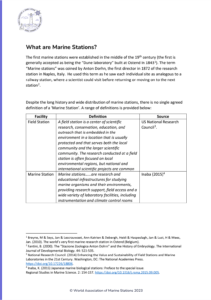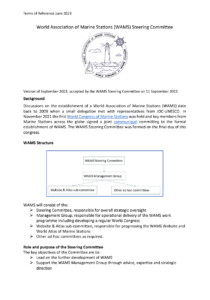About WAMS
What are Marine Stations?
The first marine stations were established in the middle of the 19th century. Despite the long history and wide distribution of marine stations, there is no single agreed definition of a ‘Marine Station’. A range of definitions is provided in this document: Marine Station Definition
Terms of Reference
Discussions on the establishment of a World Association of Marine Stations (WAMS) date back to 2008 when a small delegation met with representatives from IOC-UNESCO. In November 2021 the first World Congress of Marine Stations was held and key members from Marine Stations across the globe signed a joint communiqué committing to the formal establishment of WAMS. Read the Terms of Reference.
The World’s leading Marine Station Networks have come together in a global initiative to create the World Association of Marine Stations.
The World Association of Marine Stations is currently Chaired by Dr Matt Frost (mafr@pml.ac.uk) and supported by the Secretary Dr Anna Gebruk (Anna.Gebruk@ed.ac.uk) and a WAMS Steering Committee.

WAMS is hosted by Plymouth Marine Laboratory.
Why do we need a World Association of Marine Stations (WAMS)?
It is estimated that nearly a thousand coastal laboratories and institutes are located around the world’s oceans. These laboratories have accumulated knowledge and data for decades but until the present initiative, their joint potential has been far too little exploited.
Purpose
The purpose of WAMS is to provide a forum for marine stations from all regions of the world to establish inclusive partnerships and strengthen collaboration among marine scientists to foster marine scientific research internationally.
WAMS will enable better identification of global capacity and facilitate coordination on a range of issues including;
- education and training;
- citizen science and public outreach;
- interdisciplinary research;
- and survey, monitoring and long-term observations.
This global network will provide the marine scientific community with a common voice on marine research matters and marine policy, which in turn will foster the use of science to inform policy at the international level. In turn, this will facilitate an integrated global response to climate change impacts on marine ecosystems, their sustainability and biodiversity. Ultimately, WAMS will help the marine scientific community to better support global goals for the ocean and provide a stronger voice to champion the role of marine stations.
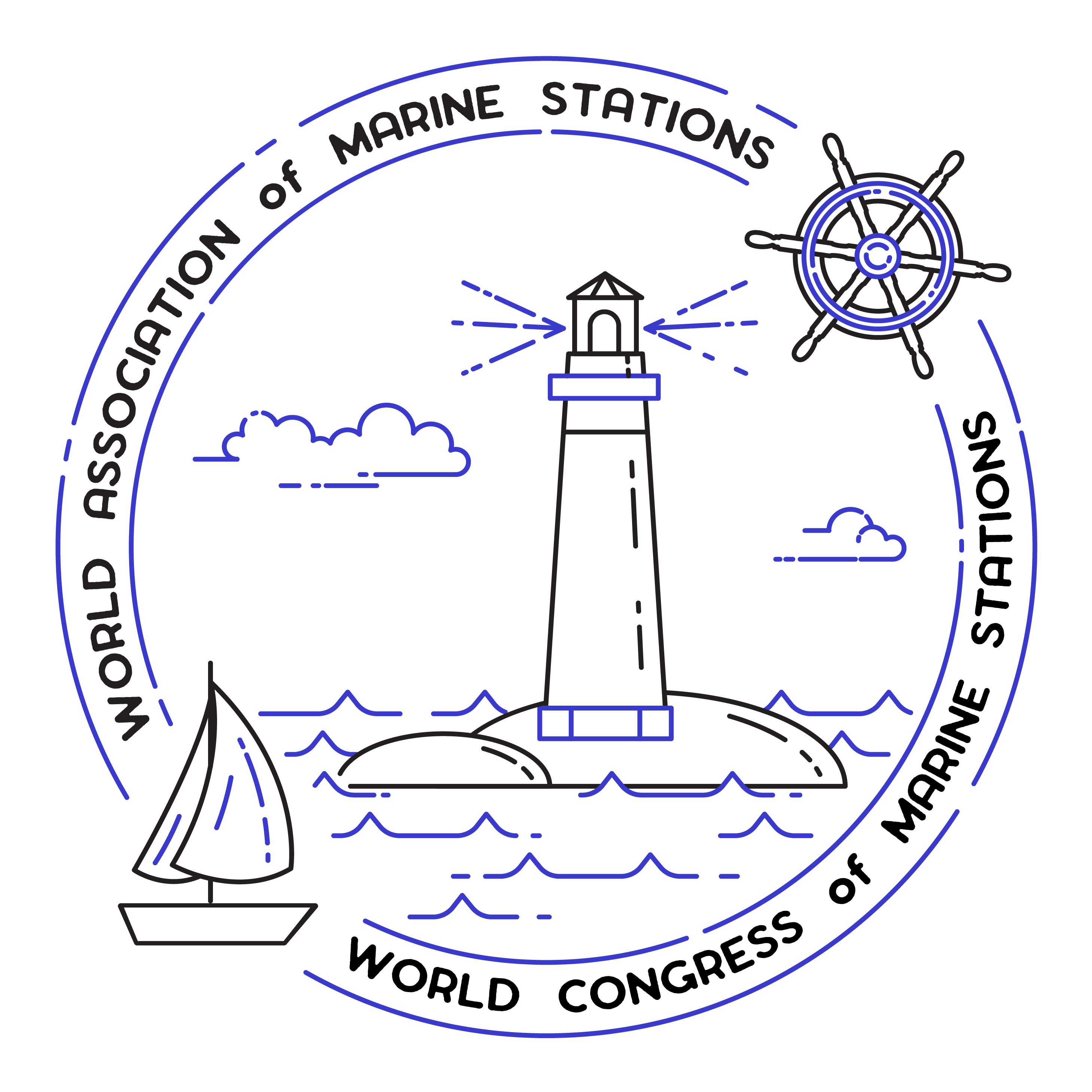
Mission statement
1.
WAMS aims to be a global network uniting the existing marine stations, and their regional networks, and create opportunities for expanded collaborations all over the world.
2.
WAMS endeavors capacity building activities, education and training, as well as data exchanges essential to a broad range of basic sciences, on both non-living and living systems and resources, marine biodiversity and ecosystem function, long-term observation of climate change, and to contribute to the improvement of the public image of the role played by marine stations in research.
3.
WAMS offers its members a unique global network and a platform to meet, communicate and exchange information, and thereby aims to initiate, facilitate and promote ideas and projects that are of interest to the long-term sustainable development of excellence in marine research, education and training, networking and capacity building.
Objectives
- Facilitate networking events among marine stations and institutes to foster collaboration in research, education, and capacity building within their domains of excellence.
- To stimulate, design, coordinate or participate in the implementation of international interdisciplinary programmes;
- To encourage the strengthening of human and physical scientific resources, world-wide, with particular emphasis on the developing world;
- To open debate regarding the long-term sustainable development of the oceans and coastal/regional seas;
- To open debate regarding the long-term sustainable development of the oceans and coastal/regional seas;
- Harmonize the global information on biodiversity needed for international conventions (e.g. CBD) and Platforms (e.g. IPBES).
WAMS has to offer and provide logistics for:
This is implemented via:
- The WAMS Annual Meeting organised for WAMS members;
- The organization of seminars, round table sessions, working groups, think tanks and such other activities as decided upon by the WAMS Board and organized for WAMS members and stakeholders.
Exchanging of information as well as transfer of knowledge between members and stakeholders. WAMS in this connection works on increasing its visibility via the web, cooperation with the press, newsletters, publications and other communication tools.
Connecting members and stakeholders. Marine ecosystems are centrally important to the biology of the planet, yet a comprehensive understanding of how anthropogenic climate change is affecting them has been poorly developed. Further change will continue to create enormous challenges and costs for societies worldwide, particularly those in developing countries.
History
The World Association of Marine Stations (WAMS) initiative dates back to 2008 when a small delegation from the MARS network (European Network of Marine Stations) met with representatives from IOC-UNESCO.
The first full meeting of WAMS was held on 13-14 April 2010 with representatives from a number of organisations in attendance including MARS; the US National Association of Marine Laboratories (NAML); Tropical Marine Network (TMN); Global Ocean Observing System (GOOS) Africa; Japanese Association for Marine Biology (JAMBIO); IOC-UNESCO; MAB-UNESCO; The Association of Marine Laboratories of the Caribbean (AMLC and CARICOMP), Scientific Committee on Oceanic Research (SCOR) and Partnership for Observation of the Global Oceans (POGO). This meeting unanimously endorsed the creation of WAMS which was formally established in 2010 by MARS and IOC.
A lack of activity around this initiative due to resource issues hindered further development at the time. However, the United Nations Decade of Ocean Science for Sustainable Development (2021-2030) has recently stimulated a renewed interest in WAMS and thus provides a valuable window of opportunity to move forward with this its full establishment.
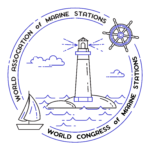
Speakers from a wide range of countries representing marine stations and networks came together at the first World Congress of Marine Stations (online) between the 17th and the 19th of November, 2021.
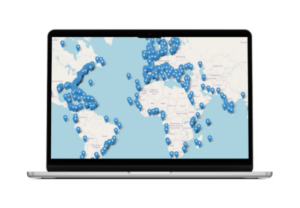
WAMS has created an interactive atlas which can be used to explore the most up to date information from around 800 marine stations across the globe.
